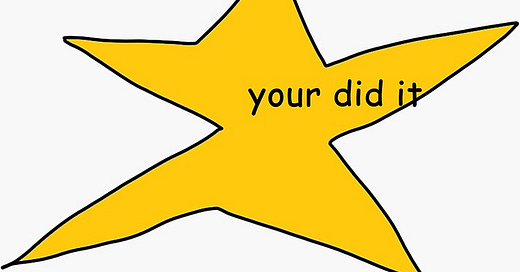Failure Should Be Taught In School
I am writing to you from the road. Today, we’re in Naperville, IL!
It’s release day! Our new book, FAIL-A-BRATION!, is out anywhere books are sold!
Are you a supporter of the book yet?
First-week sales are a HUGE help in ensuring a book’s discoverability and long-term success. Get it!
In case you’ve wondered how book covers are created, here’s this educational video:





